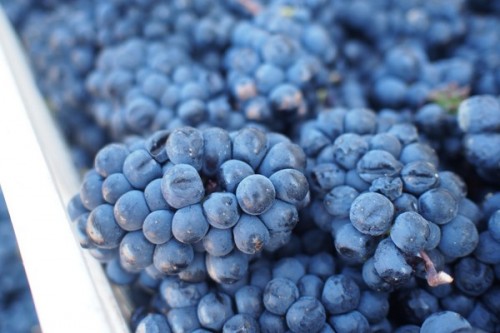
Paul Cluver is the pioneering wine farm of Elgin. Dr Paul Cluver, a leading neurological consultant, planted vines here in 1987. ‘Everyone thought we were crazy,’ he said, because at the time apples were the main crop in the valley, and they were commercially successful. In the late 1990s, though, it was a tough time for apples and lots of second and third generation family farms ended up being sold. So grapes became more widely planted. Now, things have changed, and apples are once again highly profitable – so much so that some significant vineyards have been ripped up.
I spent the day taking part in vintage here at Paul Cluver, shadowing winemaker Andries Burger. This is a film of the experience:

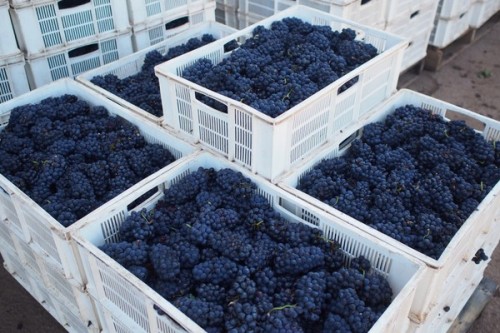
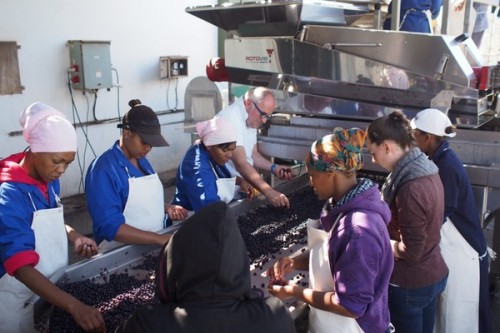
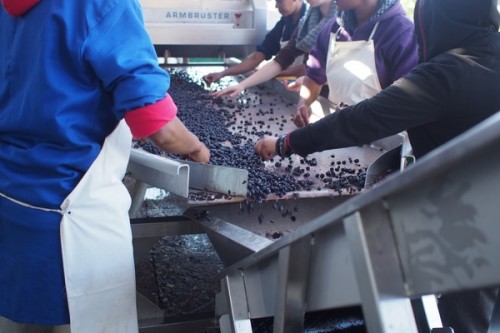
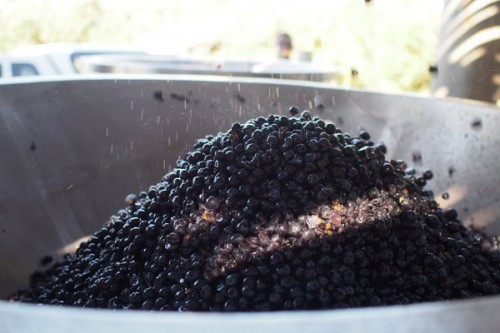
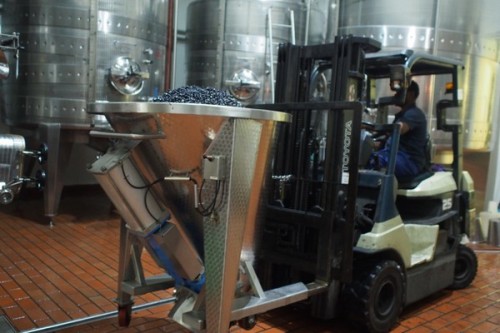
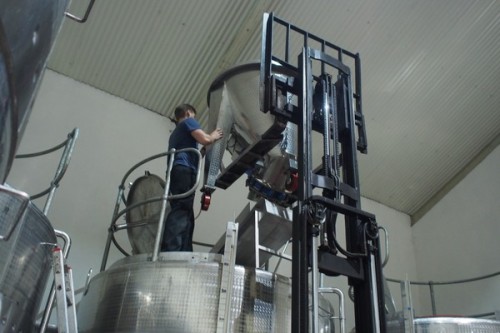
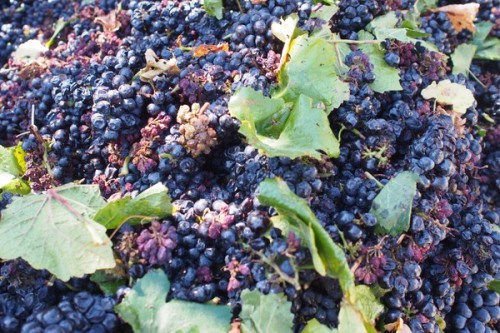
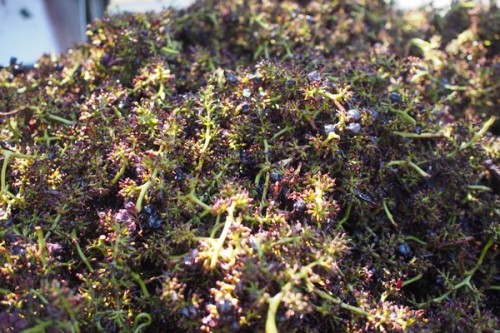
Every morning, all the ferments are tasted and checked for density (which tells you how much sugar is left, and is the way that the progress of the fermentation is checked). In most wineries, this is done using a hydrometer in a measuring cylinder full of wine. But Andries has a device that checks it automatically, which is quicker and more reproducible. It costs €3000, but he says it’s the best money he has ever spent.
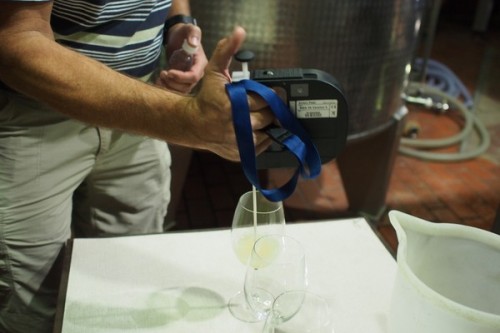
We also checked the progress of various blocks in the vineyard. Some Gewürztraminer was being picked: it’s a beautiful-looking grape.

And we also looked at a couple of Chardonnay vineyards.
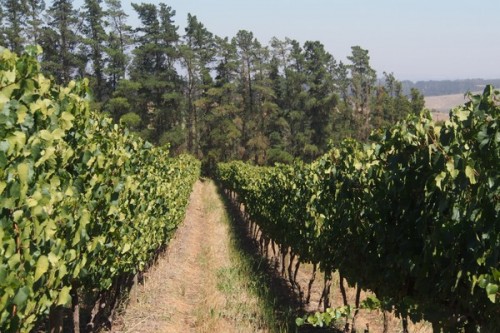
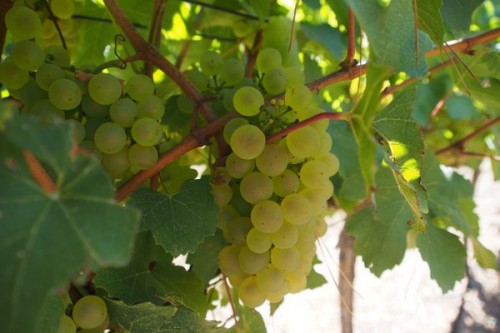
The Riesling is doing well this year. The healthy bunches are picked first, then a short time after the bunches with some botrytis (noble rot) are picked for the Noble Late Harvest Riesling. There hasn’t been any for the last two years, but this year there probably will.

Back in the winery, it was time to do some punching down of ferments. This is slightly precarious, because you need to apply enough pressure to force the floating mass of grape skins down, but not too much because they then give, and you could end up falling into the tank. These are deep tanks, and this would be very dangerous. Many people have suffocated in wineries because of the carbon dioxide produced by ferments. Apparently, an Italian stagiere fell into a ferment here a few years ago, but luckily survived, and that was during a pump over. That takes some doing: maybe he fell asleep.
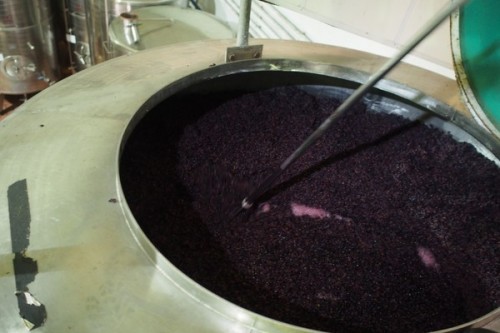
In one of the tanks, the fermentation had slowed so the cap of skins was protected by adding some dry ice. This stops the development of volatile acidity, which occurs in the presence of oxygen when the cap dries a bit.
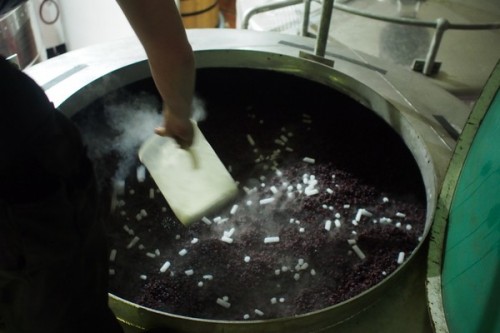
Finally, we finished the day going for a tour of this spectacular property with Dr Cluver.
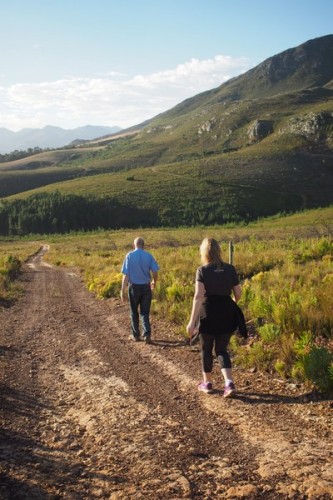

ELGIN HARVEST EXPERIENCE
Leave a Comment on Elgin vintage experience 2, Paul Cluver